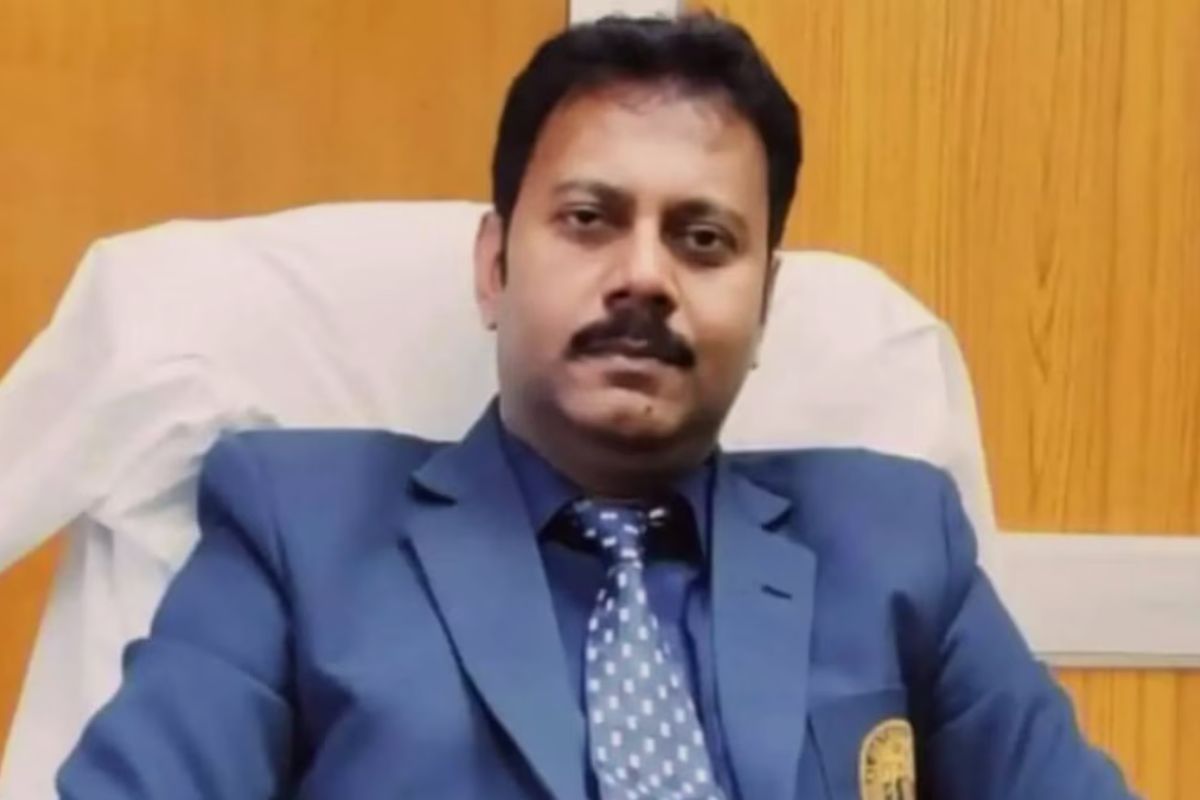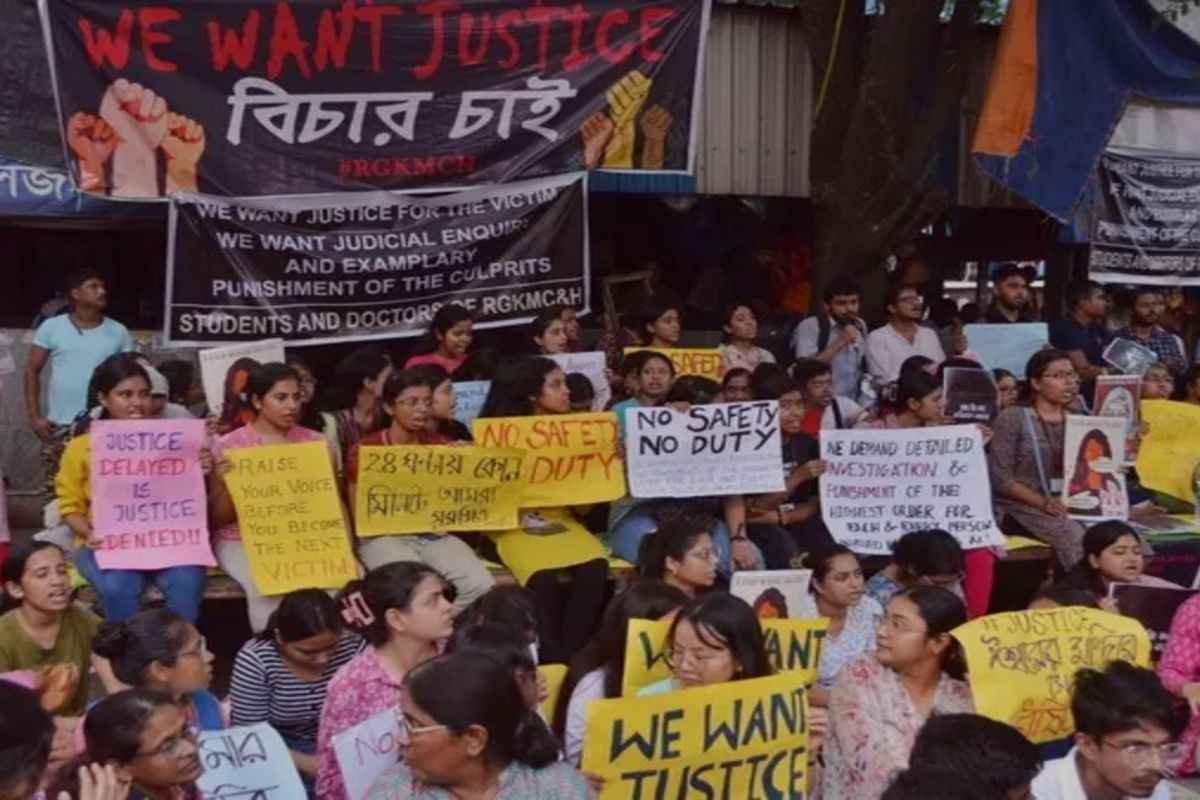In a harrowing and tragic incident, the city of Kolkata was left reeling from the brutal rape and murder of a 31-year-old doctor at a state-run healthcare facility. This shocking crime has not only raised serious questions about the safety and security within hospitals but has also sparked a major controversy involving the state government, law enforcement, and the judiciary.
As the investigation unfolds, the case has drawn significant attention, with the Calcutta High Court intervening to transfer the case to the Central Bureau of Investigation (CBI), bypassing the state’s police force. The decision was made just before a deadline set by the West Bengal Chief Minister. The following account details the events, the investigation, and the ongoing legal and public debates surrounding this devastating incident.
The Tragic Incident: A Life Cut Short
The victim, a young and dedicated doctor, was found dead under suspicious circumstances at a state-run hospital in Kolkata. The initial reports suggested that she had died by suicide, but as the details emerged, it became clear that this was not a simple case. The victim’s parents revealed that they had spoken to her the night before she was found dead, and she seemed perfectly normal, showing no signs of distress or discomfort.
However, the next morning, the hospital’s assistant superintendent contacted them, first stating that their daughter was unwell and then, within a short span, informing them that she had committed suicide. This raised serious concerns for the grieving parents, who were further distressed by the hospital’s handling of the situation. They were not allowed to see their daughter’s body for over three hours and were only permitted to do so after the intervention of the Chief Minister, by which time the news of the incident had sparked widespread outrage on the hospital campus.
Parents’ Allegations and the Suspicion of Foul Play
When the parents finally saw their daughter’s body, they were horrified to discover injuries and bleeding, with the lower part of her body uncovered. This led them to suspect that their daughter had been sexually assaulted before being murdered. They expressed their fears that more than one person was involved in the crime, believing it to be a case of gang rape.
These suspicions were supported by the findings of the initial investigation, which revealed serious lapses in the hospital’s administration and the police’s handling of the case. The parents, along with other petitioners, including a BJP leader, approached the Calcutta High Court, seeking a CBI probe to ensure a fair and impartial investigation.
The Calcutta High Court Steps In
The Calcutta High Court, led by Chief Justice T.S. Sivagnanam, took immediate notice of the case and expressed grave concerns over the lack of progress in the investigation. The court highlighted the potential for evidence tampering and the apparent negligence on the part of the hospital administration. The bench pointed out the errors in the initial inquiry and criticized the hospital’s management, particularly the principal, who had resigned under controversial circumstances.
In an unprecedented move, the court ordered that the investigation be transferred to the CBI, citing the need to maintain public confidence in the justice system. The court emphasized that the handling of the case thus far had been inadequate and that an impartial investigation by a central agency was necessary to ensure justice for the victim and her family.

The State Government’s Response
The West Bengal government, represented by its counsel, argued that the state police had been diligently pursuing the investigation. According to the government, the local police were informed of the incident at 10:10 a.m., and by 11:00 a.m., a murder investigation team was present at the RG Kar Medical College and Hospital. The government also disputed the claim that the victim’s parents were made to wait for three hours before being allowed to see their daughter’s body, stating that the delay was due to the chaotic situation at the hospital.
Despite these claims, the court remained unconvinced and continued to criticize the state’s handling of the case. The government’s decision to quickly reassign the hospital principal to another prestigious position was also questioned, with the court expressing disappointment over the lack of accountability.
Judicial Criticism and the Role of the Principal
One of the key figures in the controversy was Dr. Sandip Ghosh, the former principal of RG Kar Medical College, who resigned shortly after the incident. The court was highly critical of his actions, or lack thereof, during the crisis. The bench noted that as the head of the institution, Dr. Ghosh should have taken immediate steps to report the death to the police and ensure a thorough investigation. His failure to do so, the court argued, amounted to a dereliction of duty that had serious repercussions.
The court was particularly concerned about the fact that Dr. Ghosh was quickly reassigned to the National Medical College & Hospital, despite the controversy surrounding his resignation. The judge questioned the state’s decision to entrust him with another important position without first addressing the circumstances that led to his resignation.

The Public Outcry and the Demand for Justice
The horrific nature of the crime and the subsequent mishandling of the investigation sparked widespread outrage across West Bengal and beyond. Public protests erupted, with people demanding justice for the young doctor and calling for stricter measures to ensure the safety of women in public institutions.
The case also highlighted the broader issue of violence against women in India, particularly in places that are supposed to be safe, like hospitals. The victim, a doctor who dedicated her life to helping others, became a symbol of the vulnerability of women even in their workplaces.
The public’s demand for a thorough investigation was echoed by the judiciary, with the court noting the importance of maintaining public trust in the justice system. The court’s decision to transfer the case to the CBI was seen as a necessary step to restore faith in the investigation process and to ensure that those responsible for the crime were brought to justice.
The Road Ahead: CBI Investigation and Beyond
With the CBI now in charge of the investigation, there is hope that the truth behind this tragic incident will be uncovered and that justice will be served. The court has directed the CBI to submit periodic reports on the progress of the investigation, with the first report due within three weeks of the court’s order.
The outcome of this case will have significant implications not only for the victim’s family but also for the broader fight against gender-based violence in India. It serves as a stark reminder of the need for systemic reforms to protect women and ensure that crimes against them are investigated with the seriousness they deserve.
A Call for Accountability and Reform
As the investigation continues, there are several key issues that need to be addressed. First and foremost, there must be accountability for those who failed to act in a timely and appropriate manner during the initial stages of the investigation. The hospital administration, police, and state government all have questions to answer regarding their handling of the case.
Furthermore, this incident has underscored the need for greater oversight and transparency in the management of public institutions, especially those that are meant to serve and protect vulnerable populations. The lapses in this case suggest a deeper problem within the system that must be addressed to prevent such tragedies from occurring in the future.
Conclusion: Justice for the Victim, Hope for the Future
The rape and murder of the Kolkata doctor is a heartbreaking tragedy that has left a deep scar on the community. As the investigation unfolds, it is crucial that justice is delivered swiftly and fairly, not only for the sake of the victim and her family but also to restore public confidence in the institutions responsible for upholding the law.
This case serves as a powerful reminder of the challenges that remain in the fight against violence against women in India. It calls for a collective effort to ensure that every woman can live and work without fear, knowing that the system will protect her and that justice will prevail in the face of wrongdoing.
As the CBI takes over the investigation, there is hope that the truth will be uncovered and that those responsible for this heinous crime will be held accountable. The road to justice may be long, but with continued vigilance and determination, we can ensure that the victim’s memory is honored and that her tragic death becomes a catalyst for change.
Join the Digi Hind Community – Follow Us on Social Media for Real-Time Updates!
Stay connected and informed by following us on social media. Our channels provide real-time updates on the latest news, trends, and insights in the digital world. Join our growing community on platforms like Instagram, YouTube, and Facebook to engage with us.


